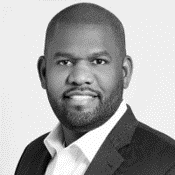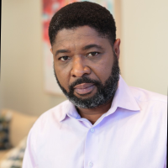About Us
Our Story

Founded in New York, 2020 with the aim of challenging and eliminating the idea that far too many corporate leaders hold about the lack of a Black Talent and a Pipeline.
Fast forward to today, and we’re a professional network, with hundreds of gifted volunteers working to advance Black and Brilliant individuals across the globe. We want to celebrate, inspire and connect by providing networking opportunities and supporting BIPOC/BAME communities – by advocating positive change into every boardroom.
Our Impact
All #BlackandBrilliant initiatives are data and insight-driven, with a strong audience focused approach – in all aspects of our story, ethos and partnerships.
We are committed to working towards solutions to fix pipeline issues that empower and support our communities.
The #BlackandBrilliant mindset is one of growth, personal development, paired with the support of our allies and partnerships.
Our impact will be measured by different qualitative data forms: surveys, testimonials, advocacy, test-and-learn practices.
Humility
Humility is our source of strength. Listening to each other is our source of power, insight, empathy, and innovation.
Partners and Allyship
Our best work arises when we treat each other with kindness and respect. By working together we can achieve the best outcomes for all.
Look at for:
Stories of impact – The Evelyn Booker Story
Network insights – Panel Events
Case studies – Get to Know Series
Data and measuring tools of impact – Accelerators & White papers
Community Engagement – Monthly Newsletters and Networking Events
Event videos
Our Team
We're global. Our leadership spans the world and multiple industries.
Institute for Social Change and Sustainability
Matter of issues of sustainability

.
The ICHS explores the interdependence of the development of modern societies and their discourses and politics of sustainability. It approaches issues of sustainability, which elsewhere are often addressed from a natural sciences, economic or technological point of view, from an explicitly social scientific perspective. Social change is not primarily a normative demand for us, but we conceptualise it first and foremost as an ever evolving reality, the causes, implications and effects of which we only partially understand. Accordingly, our key question is how this evolutionary change constantly remoulds the conditions for a successful politics of sustainability, and how it changes the understanding of sustainability itself.
























